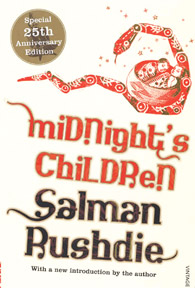Mastering (our) master's voice
 Term 'postcolonial' has almost become a household word in our day
today life. We discuss pro as well as adverse effects of it from
education systems to highway systems. As a result of colonial encounter,
we, Sri Lankans, were entitled to a unique global passport. It is
English language. Term 'postcolonial' has almost become a household word in our day
today life. We discuss pro as well as adverse effects of it from
education systems to highway systems. As a result of colonial encounter,
we, Sri Lankans, were entitled to a unique global passport. It is
English language.
Although we inherited English language from our colonial masters, we
have become the ultimate custodians of our own versions of English. It
is rather ironical to find books like 'Empire Strikes Back' in Emperor's
bookstores and bookshelves.
Much postcolonial literature depends on unacknowledged processes of
translation working like the 'radio' in Salman Rushdi's Midnight's
Children that magically renders all Indian languages intelligible to the
children of midnight.
It is surprisingly difficult to determine what languages the
characters in Rushdie's novel are actually speaking. It is a process of
representation of one language within another.
Just as there is safety in numbers, there is safety in a shared
language. Our voice quality, accent, vocabulary, and particular idiom
all denote who we are and where we come from. Language articulates our
identity. Others recognise this identity and either there is a
synchronicity or there is not. Friends feel the same about things; have
similar interests; and will often express themselves in a common
language.
Language education is crucial as an instrument of personal
development, and the promotion of a sense of personal identity.
 The shaping of personality and the exploration of self are
inextricably bound up with language development. But also, the role of
language teaching develops wider identities. From childhood, we learn to
use language not only to identify with certain groups but also to
exclude others. The shaping of personality and the exploration of self are
inextricably bound up with language development. But also, the role of
language teaching develops wider identities. From childhood, we learn to
use language not only to identify with certain groups but also to
exclude others.
To belong to a particular 'nation' is a sense of identity. We reside
in a certain geographical area and are as a result, a certain race.
India is a good example of people of many different races trying to
develop a sense of patriotic identity in respect of the nation. English
is India's 'lingua franca' or the link language as most of the Indians
use it to communicate their highly linguistically diverse fellow
countrymen. India at any sense fascinates me because it once had a
Muslim as its President, an Italian as a leader of the governing party
and its national anthem in minority Bengali.
It is always seen that how certain groups who do not talk the same,
look the same, or act the same are excluded from the 'greater' group.
However, given the importance of communication in fostering links
between people, it is not surprising that language is high on the list.
For example, South Africa has eleven official languages (we have three)
but English is the one you need in order to get a worthwhile job; in
fact, there are few countries in the world where English is not used in
the course of a day. English has become our global common ground.
Language helps to articulate cross-national identities that would
otherwise be difficult to sustain. Therefore, the social requirements
emphasise the need for children to widen their horizons and prepare
themselves to enter a 'public world' to which the passport is language.
Language is seen as opening pathways not only to careers but also to
fulfilment in identifying with the global community at large - and which
you may seek to identify with as well.
Ministerial decisions are likely to take over making English as the
medium of all university courses. That looks very timely because once
you are there, you find very little material is written in your mother
language on what you study.
Your identity is not necessarily what you inherit. It is built with
what you have acquired, borrowed and explored.
|



